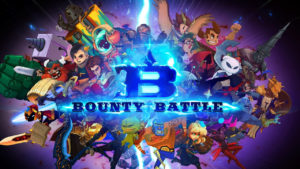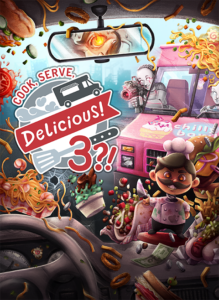What a Role Playing Game Means To Us
6 min read
The meaning of role playing games has been whittled down to a basic definition. Wikipedia even reads in the first line, “A role-playing game is a game in which players assume the roles of characters in a fictional setting.” [https://en.wikipedia.org/wiki/Role-playing_game] This is the result Google presents when doing a search, and most won’t dig any deeper. The answer given could be applied to almost any video game that we choose to play. The genre of role playing games runs deeper than this vague definition. Members of the Gameology News community agree that certain criteria is expected to be met before a game can be classified as an RPG.
To understand what a digital role playing game should be, we need to go back to the roots. In the year 1974 tabletop role playing games were commercially sold and gained a cult following. Nevermind the idea that people believed it was a product of the devil (or do mind it if the idea makes it more attractive for you). We want to talk about what the games involved. Pen and paper, hand drawn maps, hand painted figures, and hand crafted villages. To start, every player received a certain amount of points to distribute through stats like strength or dexterity. Elaborate stories could be written for character backstories, or dice could be ruled to create random tales of how the companions came to know one another. The possibilities were endless. Almost. The item people purchased to play was a story and rule book. Everything the dungeon master needed to know was in that book. Races, their heights, their characteristics and traits, allowing players to conjure an image of a character they wanted to be in this fantasy realm, and give them special skills. The books also included a general story and some dialogue, what dungeons there would be and all the monsters that would be faced. A lot of room was left open to the imagination though. A dungeon master had the freedom to tell the rogue looking under a rock that he found a piece of gold, or a poisonous snake. Roll initiative!
With that out of the way, what video games come to mind that present these same qualities in digital format? I always considered Legend of Zelda a role playing game. Based on the simple explanation, it could be. Players assume the role of Link. He’s usually depicted as having some variation of blonde hair with blue eyes. Always, he is the hero that saves Hyrule. Where’s the freedom in that? What if I want him to have brown eyes instead of blue? Why can’t I tell Link that he should kill Ingo when he refused to give up Epona? I know, not very heroic. But that’s the point! This is not an RPG, it’s an adventure game. Role playing games allow us players to be whoever and whatever we want to be in the realm of the game we have chosen to play.
Inside and out, the player should have the freedom to look and act however they choose. Not without consequence, of course, or what is the purpose of behaving badly? If you choose to purchase the apple from the stand the owner will appreciate the patronage and welcome return business. If you attempt to swipe an apple instead and get caught (shame on you for not increasing your stealth stats) you should be chased by a guard. Signs for your arrest, with a bounty in place, should be posted. Think of all the trouble you caused this digital town by stealing one apple your fat purse could have afforded. That’s how you gained so much coin though, isn’t it?
A game is going to limit players to a certain amount of races and that will depend on the realm the game is based on. Dragon Age won’t allow you to pick a cyborg and Star Wars wouldn’t let you play as a dwarf. Within those parameters, the rest should be completely open. Be as painstakingly accurate as you want, take all the time you need, or let the game randomly choose options for you. A character can be an avatar or extension of yourself into this virtual world. In an RPG, the player will want to be someone they’ve always wanted to be, whether it’s imagining themselves or someone else entirely . A hero, a villain, or a completely neutral party who is only in it for their own gain.
Immersion is a vital part of a role playing game. Players want to be part of the game and part of the story. It might not always be about their character, but they always want to have influence. This could be as simple as conversation. Being offered options that help flesh out the personality of the character designed by the player is a great way to achieve that. Decision making is another. Should we run off into danger, or deviate to this little town that has a minor crisis but can give us additional information and supplies first?
No player, when delving into an RPG, wants to be constricted to a single path. We need room to breathe and explore. An open world lends a hand to immersion. The freedom to explore anywhere in any direction we choose. However, it’s common to encounter obstacles. For instance, strolling through the woods, enjoying the songs of various birds, when you happen upon a level 20 beast. But you’re only level 8. This gives a mindful player the impression they are not meant to be in this area yet and should turn around. Whether you do or not is up to you. Maybe there is a different area to explore. Someone in a nearby town you haven’t visited yet might be able to provide better direction. Once there, you realize the locals need some help. By helping them, you begin uncovering the outlying area and start leveling up. All of a sudden (more like two hours later), you’re more than prepared to take on that level 20 beast and continue onward.
We won’t discuss music much, but the appropriate background sound effects are important. If the player walks into a medieval town, they should hear a hammer striking metal, archaic speech, rickety wheels on carts being pushed, and a bard playing a lute. In a more modern or cyberpunk setting, the roaring of car engines, gun shots, and police sirens would be more effective. This will bring the world alive. We like this in any game, but especially in an RPG where we’ve lost ourselves to the fictional world we are now transforming with our presence.
From personal experience, one of the greatest uses of the alignment system that comes to mind is Star Wars: The Old Republic. An MMORPG released in 2011, I was one of the first to play. The system might have been based on the light side and dark side of the force, but that’s similar to good and evil perspectives. As a player, you have the option of Empire or Republic when making a character, but beyond that you can do as you please. The story is partially shaped around the decisions you make, and many decisions are either considered dark side or light side. Your reputation won’t always precede you, but it does affect your physical appearance. Giving someone a second chance or killing them alters your future. Whether you spared the Imperial officer or ended their life could come back to haunt you later on. Other games that can be acknowledged here are InFamous, Fallout 3, and Mass Effect.
Another important topic of an RPG is the fighting style. It’s typical to have the turn-based style of original Final Fantasy games come to mind first, but that’s not always the case. What is important is that the player is able to customize their skills to preference. Starting out, the player will have usually chosen a class of fighter they want to be. There are paladins, warriors, rogues, priests, monks, and many more. Classes might have different names depending on the game, but their roots remain the same. Behind the scenes, a dice is rolled, determining whether the player strikes their opponent for a regular or critical hit, and how much damage they deal.
Don’t be fooled by games that claim to be an RPG simply because the player will take on the role of the main character already designed with a specific appearance and personality in mind. Make them your own through in depth or simple character customization, and divvying points to stats when given the option. Evolve your character through conversation. Shape the outcome of your story by the choices you make. Escape reality by diving into a fictional realm of immersive gameplay and storytelling with a vast world in which it’s easy to get lost on quests.



